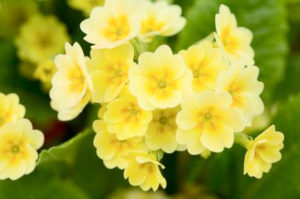 …. The primrose path of dalliance threads
…. The primrose path of dalliance threads
And recks not his own rede”
(Hamlet, act 1, sc. 3)
Comment. If yesterday it was daffodils, today it is primroses (primula vulgaris, for the botanists), another floral emblem of Spring. Equally laden, furthermore, with symbolic and metaphorical meanings, pertinent to Laertes’ (as it’s the case here), as well as to countless contemporary politicians, economists, bankers, princes of the church etc.
In the Shakespearean instance, Laertes, brother of the beautiful Ophelia, delivers all sort of advice and warnings against sin to his sister, prior to his leaving for Paris.
Somewhat overwhelmed by Laertes’ counsel, Ophelia counteracts by saying, OK I will do as you say (I shall the effects of this good lesson keep as watchman to my heart) but…
“… good my brother,
Do not, as some ungracious pastors do,
Show me the steep and thorny way to heaven,
Whilst, like a puffed and reckless libertine,
The primrose path of dalliance threads,
And recks not his own rede.”
Words that should be appended on the office walls of all the characters listed in the first paragraph. In the instance all over Europe (let alone America) everybody is good at preaching austerity, especially those who do not practice it.
“The primrose path of dalliance” was a the 16th-17th English way to say ‘la dolce vita’. “Recks not” is old English for “heeds not” and “rede” is old English for “advice” – that is, “… and does not follow his own advice.”
Tips for Use. Paraphrase the ‘do-as-I-say and not-as-I-do’ behavior of many, or comment on someone’s difference between his words and his deeds.
In the play. Ophelia tell her brother Laertes not to be a hypocrite, after all the sanctimonious advice he has given her.
